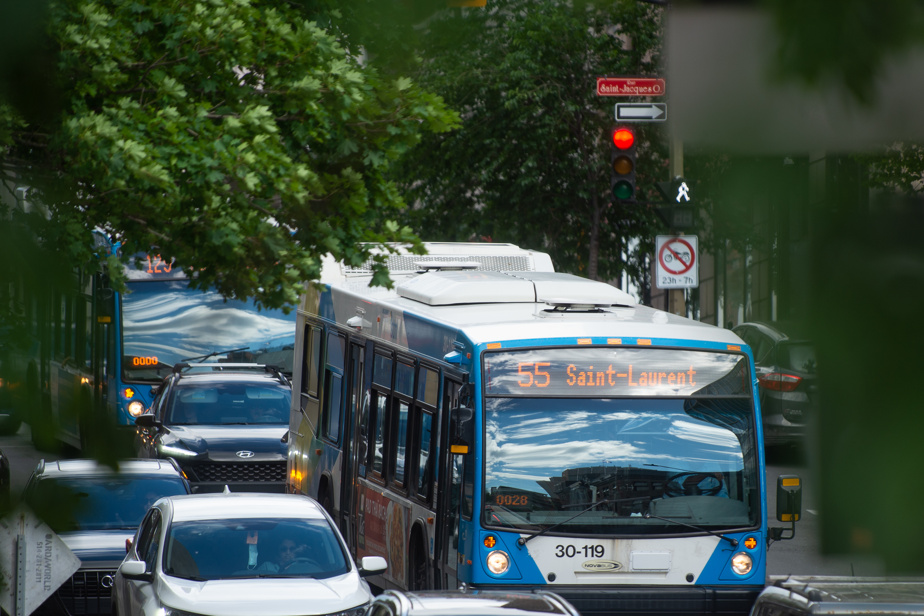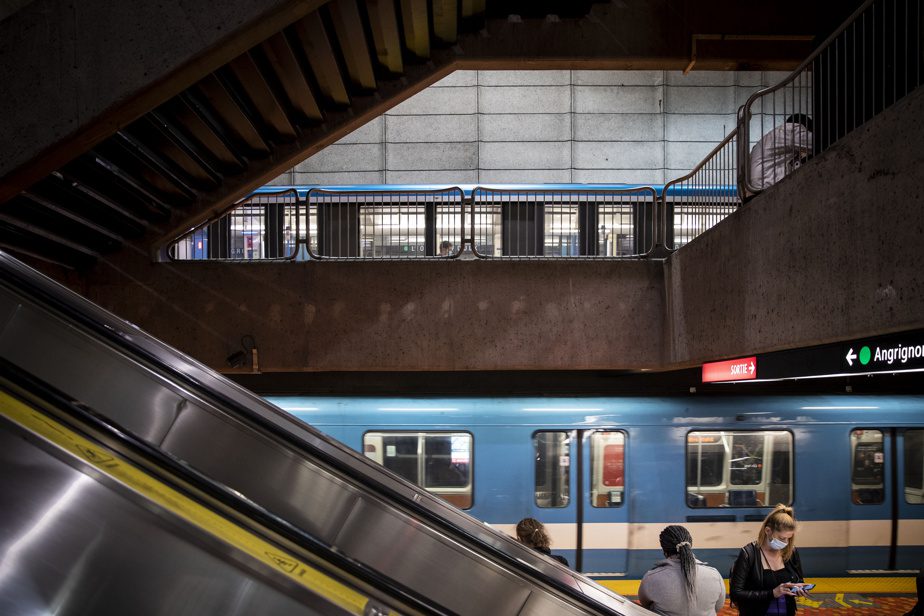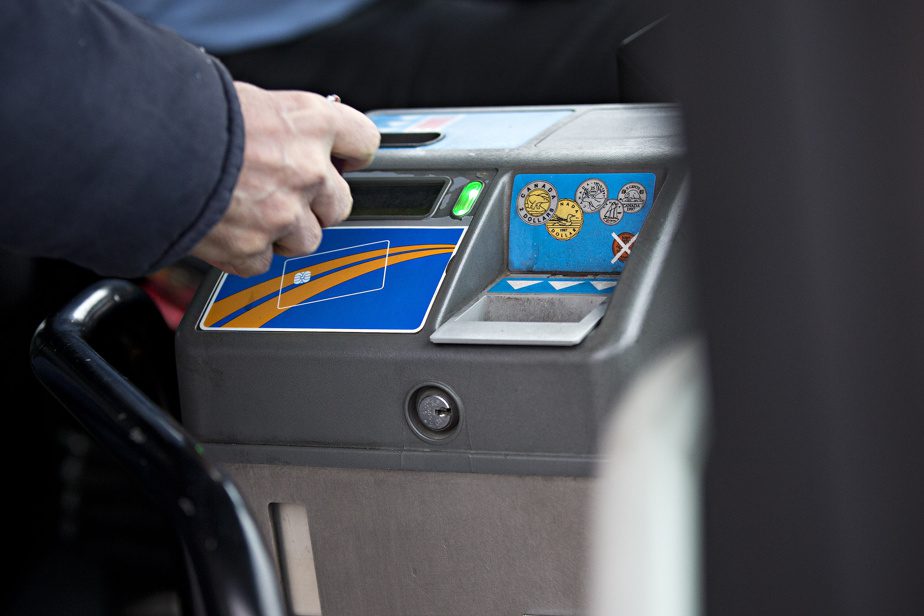
On June 5, 2018, all of Montreal’s business elite gathered at the Center Sheraton de Montréal. Invited speaker by the Chamber of Commerce of Metropolitan Montreal, Philippe Schnob, Chairman of the Board of Directors of the Société de Transport de Montréal (STM), surprised the gallery by announcing “Celeste”, an ambitious project that promises to “reinvent access” to its network.
For several weeks, teams from the STM secretly brought together players from the transport sector – the City of Montreal, Communato, BIXI, NetLift, Téo Taxi, Stationment de Montréal – and convinced them to launch this “mobility plan integrated”. .

Photo by Hugo-Sebastian Aubert, La Presse Archives
Philippe Schnob is the former chairman of the board of directors of the Société de Transport de Montreal (STM).
The concept aims to significantly simplify access to public transport: “We subscribe to a customer account once and we have access to everything. You can worry-free switch from one mode to another with an OPUS card, smartphone or watch. The system automatically calculates whether it is more beneficial for the customer to buy 10 tickets or a monthly card, explains Mr Schnob, and is invoiced at the end of the month. “At the same time, we will develop payment by credit card in metro and buses,” he said.
The project is getting good response. So good, in fact, that in May 2019, the city of Montreal received $10 million in federal funding as part of the Smart Cities Challenge, a Canada-wide competition organized by Ottawa to “enhance the lives of residents” through connected technologies. .
In the following months, a prototype was successfully tested that allowed people to pass through metro turnstiles by paying directly with an Android cell phone. Another system that allows the OPUS card to be reloaded with a smart phone is also being tested.
But on October 30, 2019, the Regional Metropolitan Transport Authority (ARTM) suddenly canceled the project citing legal opinions unfavorable to the STM.
ARTM then took up the project on its own. “Basically, they said: It’s not up to you to build it, it’s up to us to do it,” sums up one person who works in senior management at STM.
The messy and slow development of a new project piloted by ARTM was highlighted last week when a McGill student published his own software on the Internet that allowed him to recharge his OPUS card with a telephone.
The 12 people involved in the development of Celeste, when the project was piloted by STM, agreed to provide some details. Press. Their identities cannot be disclosed as they have signed confidentiality agreements with project stakeholders.

Photo by Sarah Monge-Birkett, Law Press Archives
Lionel-Groullx Station of the Montreal Metro
Monetize data
Initially, STM’s idea was handed over to its commercial subsidiary Transgesco, which mainly manages its billboard advertising network, forming partnerships with private companies to develop the project. The automaker is set to invest $1 million in Mercedes and a US start-up project marketing a trip-planning app, a source familiar with the talks said.
Through this model, STM intends to implement the new payment methods in a “brick by brick” manner, without proceeding with a serious call for tenders, several of our sources indicated.
The planned system “gave us access to all the travel data,” explains a source who worked on its development.
This is information [les données de déplacement des usagers] This is too expensive for some partners who are willing to pay for access.
An anonymous source who worked on the Celeste project
Municipal actors have drawn up plans to establish a “data trust,” overseen by a “neutral” governance body that ensures “respectful use of data,” another informant indicated.
But, on October 30, 2019, ARTM delivered legal opinions that the mandate handed to Transgesco was illegal, confirm our five sources. The STM has provided legal opinions to the contrary, “but this has chilled many elected municipal officials,” said one informant.
“ARTM is very warm about the idea of partnership with TransJesco. They nipped the project in the bud,” said one person explaining the decision.
Tensions between ARTM and STM
François Pepin, former director of studies and projects at STM, now retired, opined that STM and ARTM could not work together on the project.
The reality is that during the period when STM was trying to develop Celeste on its side, ARTM [instaurée en 2017] It has just begun. And from the beginning, there were very strong tensions between the organizations, disagreements about how to proceed, so often cooperation was not really there.
François Pepin, former director of studies and projects at STM
Behind the scenes, former ARTM members argued that STM’s Céleste system’s business model “just didn’t work.” As per our information, partners such as Mercedes associated with the application withdrew at that time due to financial fears.

Photo by Hugo-Sebastian Aubert, La Presse Archives
BIXI was one of the “players” connected to the system.
“The idea of connecting metro and buses in a single application with all the players like BIXI, Communo Auto and taxis, everyone agreed that it was stuck. It really raised concerns in terms of budget and partners,” said one of them.
New mammoth call for applications
Until June 2022, after holding a public consultation, ARTM reopened the call for qualifications to find companies capable of developing a project like Céleste, known as Concerto.
4 metro lines, 5 train lines, 600 bus lines, REM, STM, STL, Réseau de transport de Longueuil, exo, river shuttle, paratransit, specifies the application document.
Functional prototypes for seven different scenarios must also be demonstrated. “No financial compensation will be allocated” for the creation of these prototypes, states ARTM in its call for tenders.
It took us two months of work to fill out the paperwork and develop the demos.
An entrepreneur interested in ARTM’s Concerto project
And then, last June, the call for eligibility was abruptly canceled. “No supplier qualified”, vindicates ARTM in the call for application documents.
“After analyzing the proposals received, it turned out that no supplier was able to prequalify by offering a single solution combining both the ticketing component and service mobility”, a summary of discussions about ARTM, Séléna Champagne via email.
“Faced with this situation, ARTM changed the direction of the project to prioritize the ticketing system first,” said Ms.me Champagne. A new call for tenders will be adjusted accordingly and submitted,” she said without giving a date.
Five years after Philip Schnob’s announcement before the Chamber of Commerce, it’s back to square one.
Student software hosted by Hackfest
Computer code programmed by McGill student Alex Lai that lets you recharge your OPUS card directly with your Android cell phone is now hosted on the Hackfest site, a group of independent programmers interested in computer security. ARTM asked Mr Lai to stop its distribution last week, citing safety risks to consumers. “This is the kind of software that should be around for years,” explains Hackfest co-founder Patrick Mathieu. “ARTM asks a student to withdraw from the web, is programmed in open code and works by connecting to a public transaction site (OPUSenligne.ca), where no access code or password is required. In our opinion, there should not be. It does not work, There are already many people who have copied the software. It will not cease to exist,” said Mr. Mathieu. ARTM awarded the Paris firm Spirtech a 1.1 million contract to program a solution similar to Mr. Lai’s, which would support a modernized transaction site, comply with new banking standards and provide 7 per year It will be able to support a million transactions, compared to the current 300,000.Its launch is scheduled for early 2024.
Tristan Peloquin, Press
Is the OPUS system outdated?

Photo by Patrick Sanfaccone, Law Press Archives
For many observers, the real problem underlying this whole debate is that the OPUS system is also coming to the end of its useful life. Across Canada, other players are already offering faster payment options to transportation companies. This is the case of Cubic Transportation, which essentially replaces traditional transport tickets with a payment system linked to the customer’s account, which uses contactless bank cards or cell phones. “OPUS accomplished what it set out to accomplish, but we’re not there anymore,” said Matthew McDonagh, Cubic’s senior director of Canadian business development. “Today, we realize that card-based systems take up a lot of infrastructure, but above all, they limit you in terms of pricing flexibility. In Montreal, with REM set to continue to grow in the coming years, OPUS is no longer the right medium,” he concluded.
Henri Ouellet-Vezina, Press





